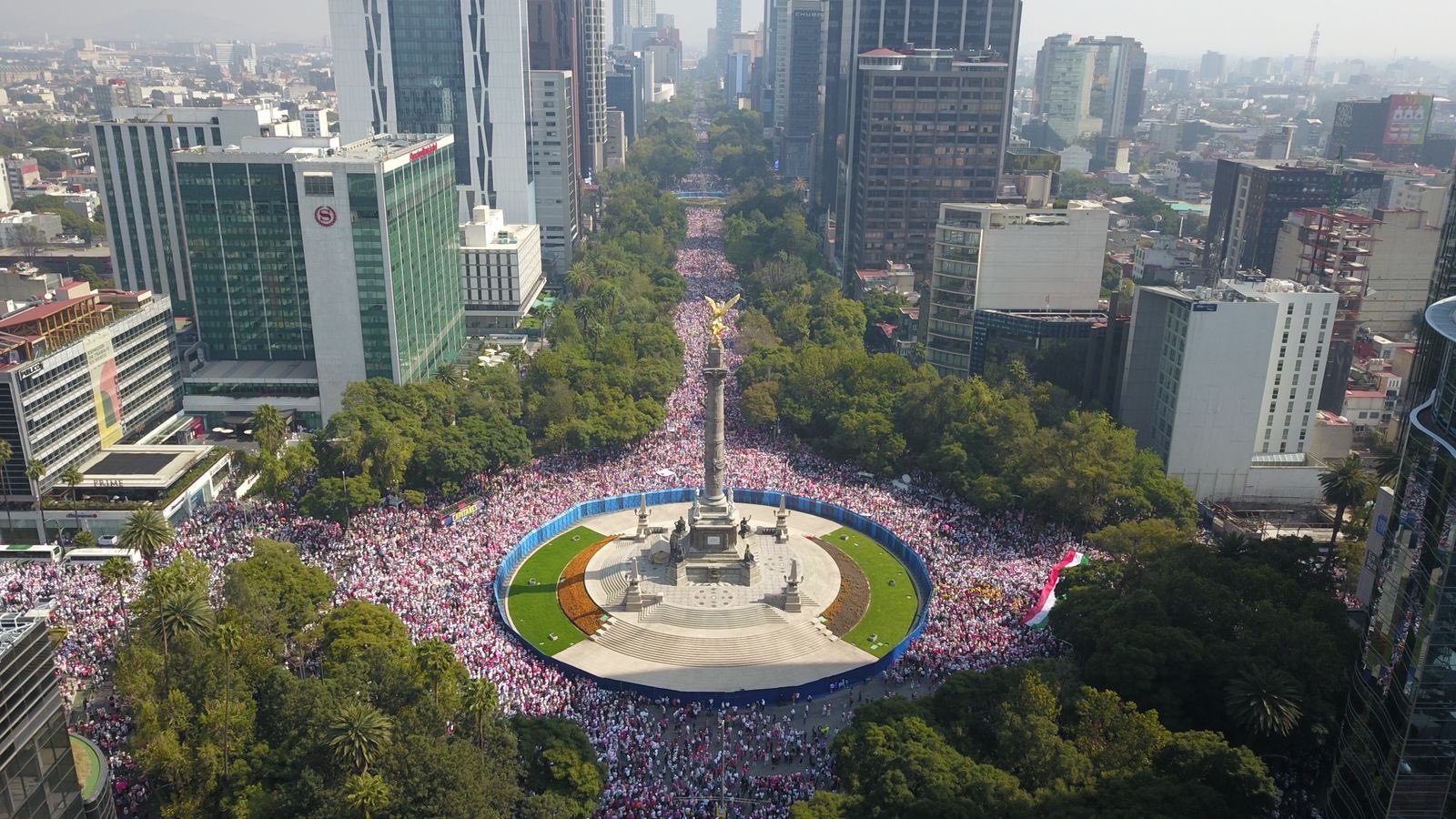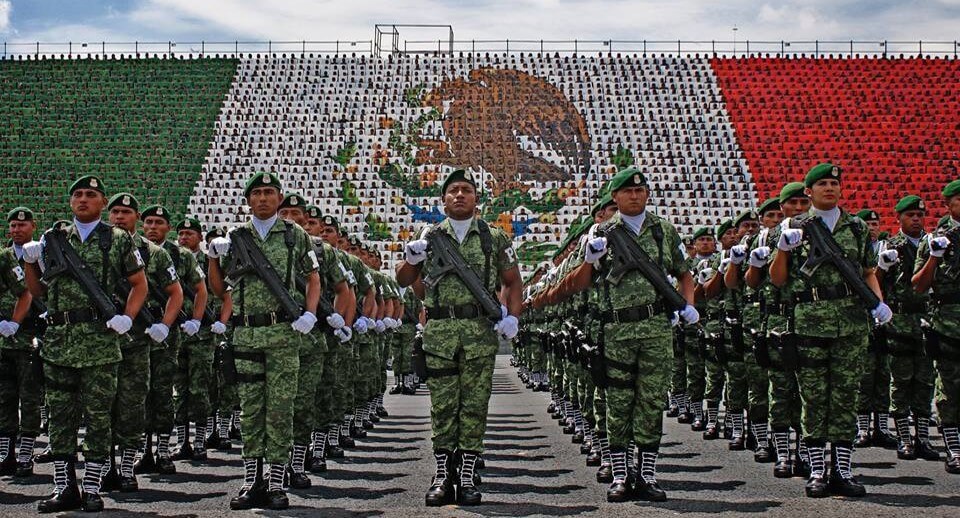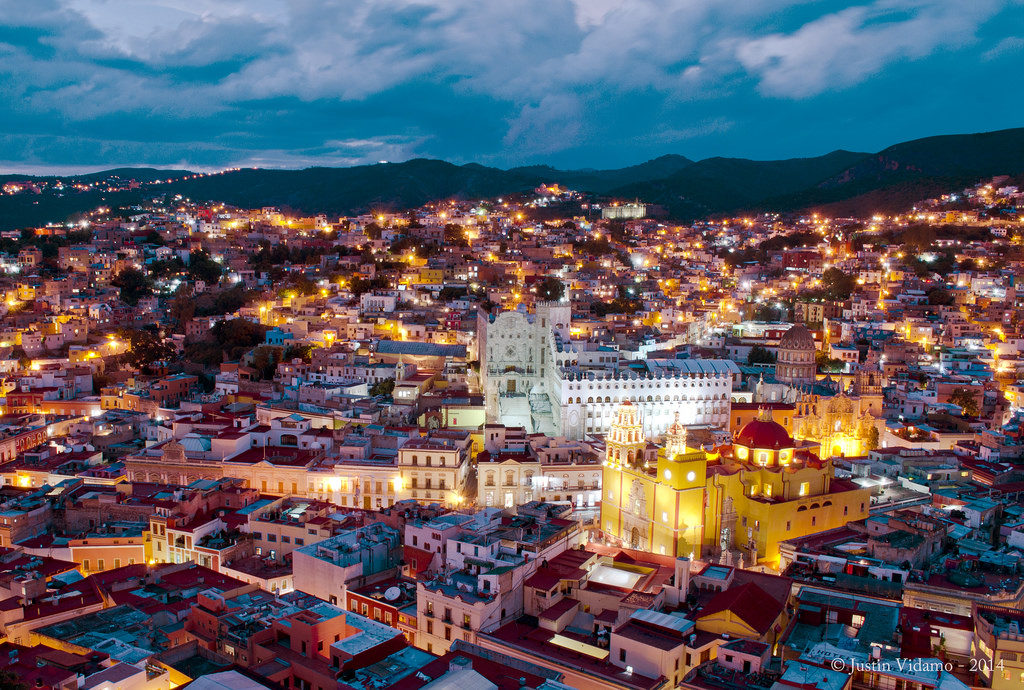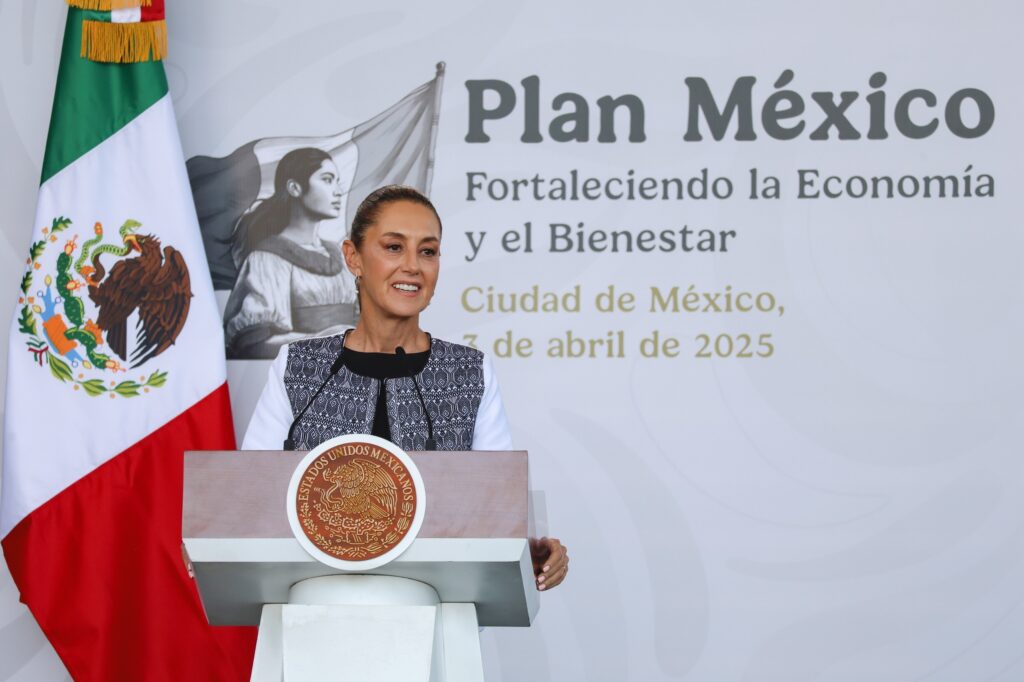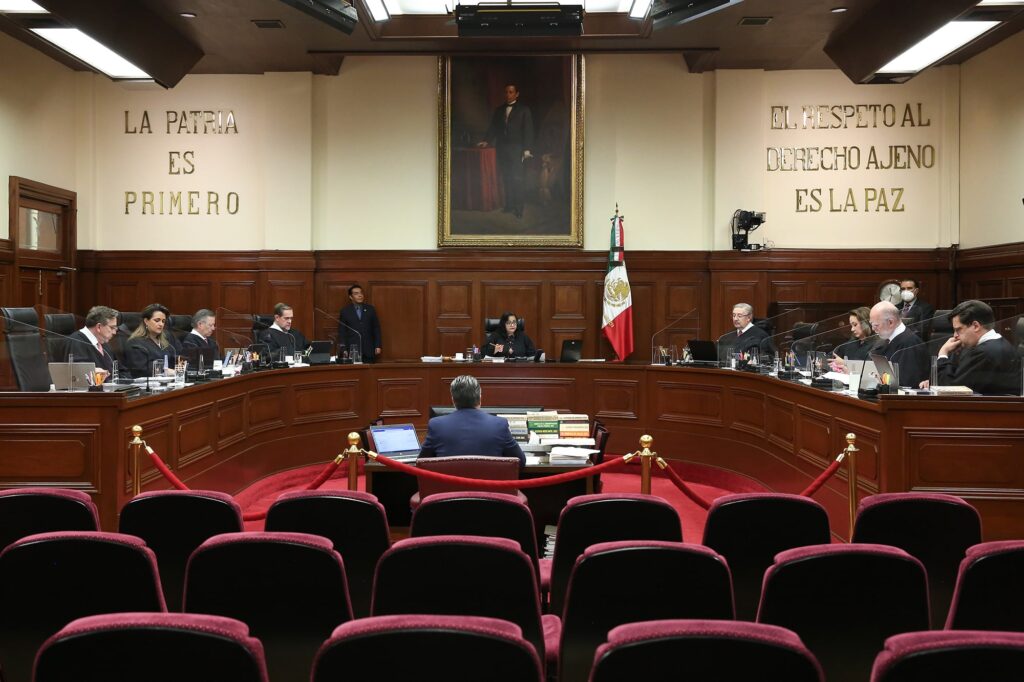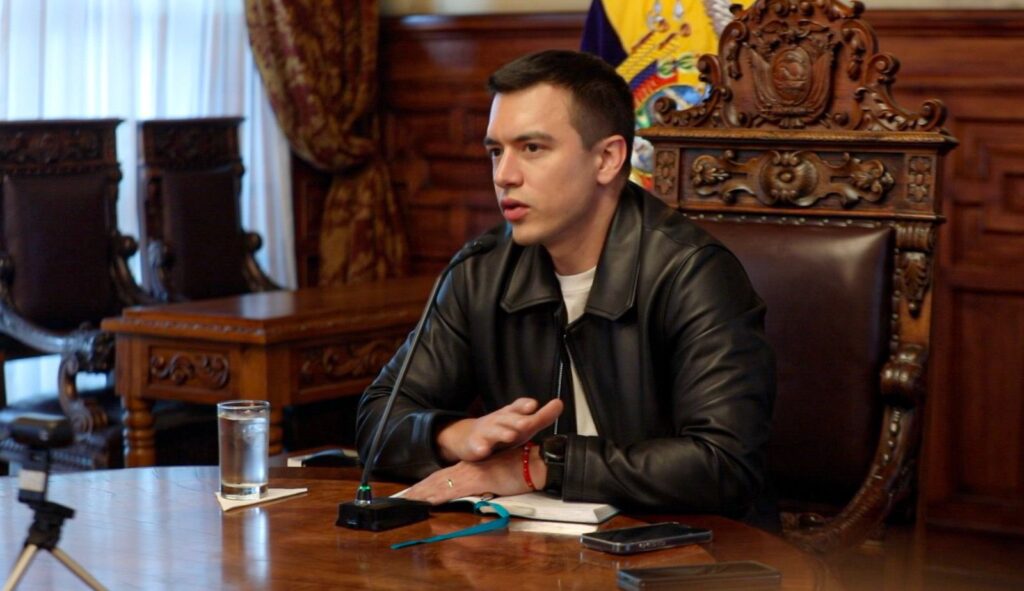Tens of thousands of people took to the streets on Sunday to protest President Andrés Manuel López Obrador’s proposed reforms to Mexico’s electoral system.
Organized by his political opposition as well as civil organizations, the mobilizations which took place in at least 50 cities across the country as well as in the United States and Europe, were particularly critical of López Obrador’s proposed plan to reconfigure Mexico’s National Electoral Institute (INE), an autonomous, public agency responsible for organizing federal elections.
Protesters were seen sporting banners with the words “Hands off INE,” calling the proposed changes an authoritarian attempt to destroy Mexican democracy.
The controversial bill, which López Obrador first presented on April 28, 2022, is set to reform 18 articles of the Mexican Constitution, impacting the Mexican congress, the funding of political parties, and the INE.
Specifically, critics condemn the structural changes to Mexico’s electoral commission, which seeks to create a new centralized entity called the National Institute of Elections and Consultations (INEC) in favor of the current INE.
The reform will look to discard electoral authorities at the state and local levels, leaving all tasks to the centralized INEC. Furthermore, the electoral counselors who compose the institute would be elected by popular vote, with an equal number of candidates proposed by the president, Congress, and the Supreme Court.
If approved, the initiative will be one of the most critical reforms of López Obrador’s presidency.
“It seems to me that it is the only one of the three major reforms that are important to him that he has pending since he has already passed the energy reform and carried out the reform to the National Guard in regard of national security,” Ana Vanessa Cárdenas, coordinator of the international relations department of the Universidad Anahuac Mayab, told Aztec Reports.
While López Obrador assures that his initiative aims to “clean up” Mexico’s electoral commission, critics are wary that under the reform, a Congress controlled by the president’s MORENA party as well as the executive branch itself would be able to propose candidates to the electoral commission.
“Today, they are trying to return control of the electoral system to the government. It seems to me an implosion and a deliberate democratic step backward,” added Cárdenas.
However, according to Cárdenas, not all of the initiatives pushed by the president should be discarded. Reforms such as decreasing the number of legislators in Congress and establishing electronic voting are important for Mexican democracy.
While celebrating Sunday’s demonstration, Cárdenas explained that reading the initiative and pushing for needed changes is the best path forward to creating a better bill for disgruntled citizens.
“Stopping the electoral reform in its totality will not happen. The reform is going to happen. If the citizens would exert pressure on the representatives, we could have a much more moderate reform,” she said.
“Otherwise, we would have an electoral system controlled by the government, the centralization of an electoral body that would lose its independence; we would have manipulation from the presidency,” said Cárdenas.


